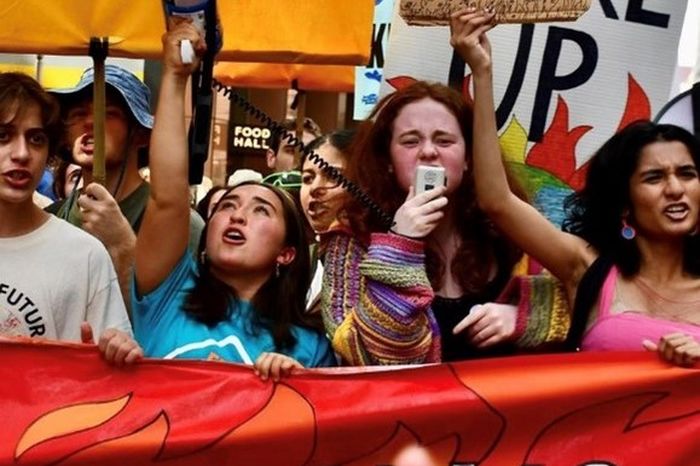Having only arrived in Cambridge “a few minutes” before speaking to us, Dr. Martin Stern immediately discusses the importance of continuing conversations about the Holocaust: “It’s important to keep drawing attention to this horror which occurred in the middle of Europe.” Stern emphasises the importance of remembering history as part of his Holocaust Memorial Lecture at the Cambridge Union to mark the 80th anniversary of the Auschwitz Liberation.
Born in 1938 in Holland, Stern’s parents had fled to the Netherlands as German law prohibited his non-Jewish mother from marrying his Jewish father. He was arrested aged five, and survived camps at Westerbork and Theresienstadt. After being released from the camp, he was sent from family to family, becoming a British citizen aged 16 before going on to study medicine at Oxford. He worked as a hospital doctor in Leicester, retiring from the NHS in 2002. Now, Stern dedicates his time to sharing his experience growing up.
His concern for continuing conversations about the Holocaust is a central thread throughout our conversation, describing remembering history as “absolutely essential”. He notes how genocide is not a distanced, unimaginable event, but something that could and does happen everywhere. Indeed, the Holocaust “occurred in the middle of Europe […] in a country which regarded itself as the most civilized country.” Remembering the Holocaust is significant – not just because it was a highly crucial moment in history, but also because Memorial Day represents something more than the Holocaust. It calls attention to the many genocides which continue to occur across the world, which “most people don’t even know about”.
“His overarching message is that Memorial Day ‘is not all about Jews, it is about the human race’”
According to Stern, a “massive ignorance” and distortion of history, with events often being poorly misrepresented, continue to affect the general public’s understanding of genocide. In turn, he wishes to use his own experiences to raise awareness of what happened. “Every year scholars discover new things about the Holocaust which we did not know before,” he says, restating the need for continued research into this tragedy. His overarching message is that Memorial Day “is not all about Jews, it is about the human race,” underlining how this is something that affects us all.
Stern gave up working as a doctor in 2002, one year earlier than the official retirement age, as, in his opinion, the working conditions in the National Health Service “were going wrong” and “not worthy of a year’s more salary”. When asked whether he went into the medical field because of his childhood experiences, he explains that there are two reasons for everything you do – “the noble reason and the real reason”. He explains the noble reason to be growing up, “in the household of my uncle, who was an exceptionally good doctor and told amazing stories over the dinner table, which were an incentive.” However, the real reason was being shown a figure of what one could earn as a biological scientist and what one could earn as a doctor, and realising he couldn’t “raise a family” with the salary of a biological scientist – a central motivation for Stern. “In the end the thing that really drove me and motivated me was curiosity,” he concludes.
“Stern stressed that ‘massive ignorance’ and a distortion of history […] affect the general public’s understanding of genocide”
Discussing how his life experiences have affected his faith, he mentions that growing up, his parents were “proud atheists”. As a result, he was “not aware of any manifestation of religion” until after WWII, following which he was brought up Christian. In his university years, he abandoned Christianity. He stepped into his first synagogue in decades in his fifties and has followed the Jewish faith ever since.
Expanding on his interest in psychology, Stern further examines humans’ capacity to harm each other. He sheds light on how humanity has always had a track record of murder, with the percentage of murder increasing the further back we go in history: “If you dig up prehistoric bones, a forensic pathologist will tell you that more of those people were killed by human action than in any known historical period, including periods of terrible war.”
Stern asserts that understanding the behaviours and motivations behind the propagators of war is crucial. He highlights that a “knowledge of the sciences related to human behaviour, psychology, neuroscience, sociology, anthropology, criminology” needs to be integrated into our understanding of the Holocaust. Pushing for further research in this area, he states that “80 years is a very important time to re-examine and reassess” the Holocaust – we need to incorporate deeper research which seeks to merge history with psychology in order to understand “whether there is more we can do” to prevent any recurrences.
Alluding to his interest in human psychology, he says, “simplistic thinking [is still] all around us,” which is why there is still so much intolerance in society. “We are still the same primitive biological creatures with limited brains,” he argues, and it is in our nature to “indulge in the sport of jumping to conclusions,” judging those who aren’t like us.
Despite this, Stern is hopeful for humanity’s future, viewing civilisation as a “constant process”. “I see civilization as a verb rather than an act,” he explains, painting today’s world in an optimistic light and citing technological advancements, medical developments, and liberal principles as emblematic of our progress. Looking ahead, Stern concludes by noting how it is the youth of today who will see and enact change: “Young people ask me whether I have hope, what I think of the future. And I tell them, I don’t have a future. I can’t wait. But I know who’s going to wait: you.”


